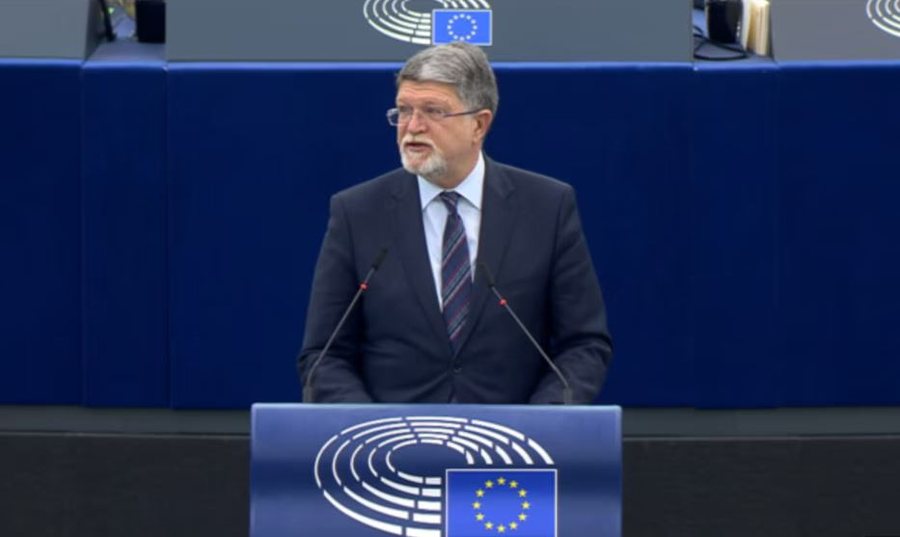
The European Parliament's permanent rapporteur for Serbia, Tonino Picula, after his visit to Belgrade, during which he did not meet with top state officials, said that Serbian President Aleksandar Vučić had planned such a thing.
"The decision to reduce direct contacts with me, on behalf of the government, exclusively to talks in the People's Assembly and the Ministry for European Integration was, of course, made by President Vučić, as only he decides on such moves," Picula confirmed to Radio Free Europe.
Picula went to Belgrade after the draft report was presented to the European Parliament's Foreign Policy Committee on February 20, which faced criticism from Serbian authorities.
The meeting with the rapporteur for Serbia was rejected by Vučić, who called Picula a "liar." In addition to Vučić, the meeting was also rejected by the head of the parliamentary group "Aleksandar Vučić - Serbia Must Not Stop" in the Serbian Parliament, Milenko Jovanov.
Picula claims that the government's negative stance towards the draft report on the situation in the country was promoted even before his arrival.
"On the other hand, it would not be fair to reduce the meaning and results of my stay in Serbia only to the meetings I did not have with the president of the state, the acting prime minister and the minister of foreign affairs," said Tonino Picula.
During his stay in Serbia, a police action also took place at the premises of several non-governmental organizations in Belgrade.
Picula confirms that this element, along with all the impressions from the visit, will be included in the ongoing work on the report on the situation in Serbia.
He assessed that the four-day mission in the capacity of the European Parliament's permanent rapporteur for Serbia has shown that it will not be possible to easily overcome the differences in assessments of the situation in the country between him and the government representatives with whom he did not have the opportunity to talk.
"The most important events in Serbia for months have been the mass protests led by students, who are blocking educational institutions. The protests have spread almost throughout the country. In my opinion, it is about a general social pressure on politics, aimed at freeing state institutions from everything that has blocked them for years," Picula emphasizes.
According to him, future developments will depend on the relationship between four factors that he considers most influential: the government, which is failing to disperse the protests; the institutional opposition, which is not leading developments; the international community, which is largely keeping its distance; and the students, who have a broad base of legitimacy, but have not yet expanded the list of demands beyond the initial ones.
Students, who have blocked more than 60 faculties across the country since late November, are demanding criminal and political accountability for the tragedy in Novi Sad, where on November 1, 2024, the roof of the Railway Station collapsed, killing 15 people.
The students also demand the prosecution of those responsible for the attacks on them and other citizens during the protests.
The government, led by President Vučić, claims that a "color revolution" is being attempted in Serbia and insists that the students' demands have been met. Students and academics reject these claims./ REL (A2 Televizion)











